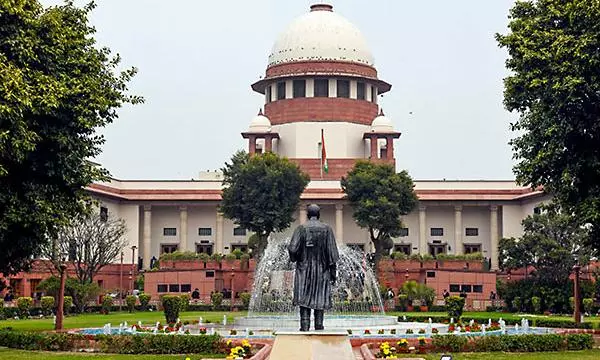
SC says Muslim woman can seek alimony from divorced husband under Sec125 of CrPC
Section 125 of CrPC, under which Shah Bano too had sought alimony many years ago, is applicable to all married women irrespective of religion, says the SC now

A Muslim woman can seek alimony from her divorced husband, the Supreme Court has ruled.
On July 10, in a significant development, the Supreme Court ruled that a Muslim woman can seek maintenance from her husband under section 125 of the Code of Criminal Procedure (CrPC), which is applicable to all married women irrespective of religion.
Notably, the Court held that the Muslim Women (Protection of Rights on Divorce) Act 1986 will not prevail over the secular law.
The judgment came as a bench of Justices BV Nagarathna and Augustine George Masih dismissed a petition by one Mohd Abdul Samad, who has challenged the order of the Telangana high court to pay maintenance to his wife. The high court had refused to interfere with the maintenance order given by the Family Court.
The Family Court had ordered him to pay maintenance to his divorced wife under Section 125 of the Criminal Procedure Code (CrPC).
The petitioner had contended that a divorced Muslim woman is not entitled for maintenance under Section 125 of CrPC and has to invoke the provisions of the Muslim Women (Protection of Rights on Divorce) Act, 1986.
Law applies to all married women
"We are hereby dismissing the criminal appeal with the major conclusion that section 125 would be applicable to all women and not just married women," Justice Nagarathna said while pronouncing the verdict.
The bench asserted that the law for seeking maintenance applies to all married women, irrespective of their religion, reported LiveLaw. Justice Nagarathna and Justice Masih delivered separate, but concurrent judgments. They held that the Muslim Women (Protection of Rights on Divorce) Act 1986 will not prevail over the secular law.
The bench said maintenance is not charity but the right of married women and it is applicable to all married women irrespective of their religion.
Shah Bano case
According to the contention raised by the petitioner-husband, "to the legal position flowing from Mohd Ahmed Khan v. Shah Bano Begum, factum of divorce was not relevant and every Muslim woman was entitled to maintain a Section 125 CrPC petition. To upset this ruling, the Muslim Women (Protection of Rights on Divorce) Act, 1986 Act was enacted and it codified the Supreme Court judgment."
The Act is a complete code in itself and a reading of its provisions would show that it was intended to have an overriding effect over Section 125 CrPC, said the lawyer representing the husband.
"It is a settled position of law that special law (the Act) shall prevail over general law (CrPC). Language of the Act being clear, there is no reason for the Court to go beyond. It must simply give effect to what is stated in the Act," he said.
Section 5
Section 5 gives an option to the divorced couple to not be governed by the Act. This shows that a Muslim wife cannot resort to both remedies.
However, Amicus and senior advocate Gaurav Agarwal said the Act only concretizes Muslim personal law. "It broadens a divorced Muslim woman's entitlement to maintenance beyond the iddat period, but does not take away the relief available to her under Section 125 CrPC because the purpose behind the latter is different," he said.
The petitioner's reliance on Section 5 of the Act is misplaced, as that provision comes into play when an application has been filed under Section 3 of the Act. In the present case, the respondent-wife had approached the Court under Section 125 CrPC.
Bench's observations
Justice Masih said in his observations that this 1986 Act does not bar..."it is the choice of the person who had applied or moved an application under 125...there is no statutory provision provided under the Act of 1986 which says that 125 is not maintainable". Concurring, Justice Nagarathna said that there was nothing in the 1986 law which barred one remedy in favor of the other.
Further the bench said, "If the Parliament had the intention to extinguish such rights of the Muslim woman, it would only be reasonable to expect the Parliament to speak in definite and specific language about such extinguishment. Parliament must have been aware that when 1986 Act was enacted, number of orders must have passed in favor of divorced Muslim women under Section 125...Message appears to us to be loud and clear...Both rights, under Section 125 of the Code and Section 3 were conferred on the divorced women. She has the right to choose."
Responding to petitioner's submission that the provisions of the 1986 Act indicate Parliament's intent to bar Muslim women from filing maintenance claims under Section 125 CrPC, the bench said that would be "unconstitutional".
If the Parliament intended for divorced Muslim women to no longer be entitled to file petitions under Section 125 CrPC from the date of commencement of the Act, it could have explicitly given an overriding effect to the Act, the Bench remarked. To quote Nagarathna J, "In the absence of such a thing, can we add a restriction to the Act? That is the point".
(With inputs from agencies)

